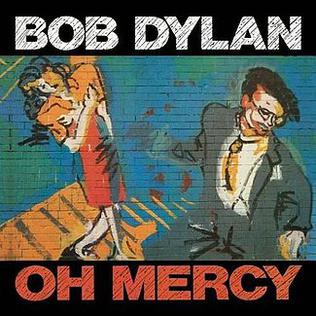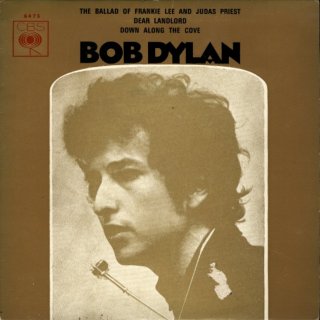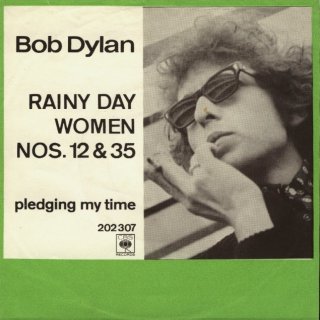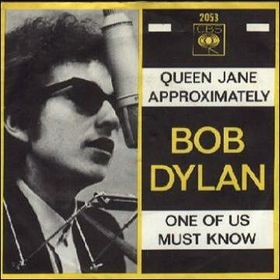Related Research Articles

Slow Train Coming is the nineteenth studio album by American singer-songwriter Bob Dylan, released on August 20, 1979, by Columbia Records. It was Dylan's first album following his conversion to Christianity, and the songs either express personal faith, or stress the importance of Christian teachings and philosophy. The evangelical nature of the record alienated many of Dylan's existing fans; at the same time, many Christians were drawn into his fan base. Slow Train Coming was listed at No. 16 in the 2001 book CCM Presents: The 100 Greatest Albums in Christian Music.

Oh Mercy is the twenty-sixth studio album by American singer-songwriter Bob Dylan, released on September 12, 1989, by Columbia Records. Produced by Daniel Lanois, it was hailed by critics as a triumph for Dylan, after a string of poorly reviewed albums. Oh Mercy gave Dylan his best chart showing in years, reaching No. 30 on the Billboard charts in the United States and No. 6 in the UK.
"Shelter from the Storm" is a song by Bob Dylan, recorded on September 17, 1974, and released on his 15th studio album, Blood on the Tracks, in 1975. It was later anthologized on the compilation album The Essential Bob Dylan in 2000.
"Absolutely Sweet Marie" is a song by American singer-songwriter Bob Dylan, which was released on the third side of the double album and Dylan's seventh studio album, Blonde on Blonde (1966). The song was written by Dylan and produced by Bob Johnston. It was recorded at around 1:00 am on March 8, 1966, at Columbia Studio A, Nashville. Some commentators have interpreted the song as being about sexual frustration.
"Angelina" is a song by American singer-songwriter Bob Dylan, recorded on March 26, 1981, for his album Shot of Love but not included on the record. The song was written by Dylan and produced by Jimmy Iovine. A version was released on The Bootleg Series Volumes 1-3 1961-1991 on March 26, 1991, exactly ten years later. A different take was issued on The Bootleg Series Vol. 16: Springtime in New York 1980–1985 in 2021. Critics have expressed their lack of understanding of the lyrics, whilst generally affording the song a positive reception. Dylan's rhyming of the name in the title of the song with "concertina", "hyena", "subpoena", "Argentina" and "arena" has attracted commentary, with scholar Nicholas Birns calling the rhymes "bravura and ... provocative".

"The Ballad of Frankie Lee and Judas Priest" is a song by American singer-songwriter Bob Dylan. It was released as the fifth track on his eighth studio album John Wesley Harding (1967). The track was written by Dylan and produced by Bob Johnston. It was recorded in one take on October 17, 1967, at Columbia Studio A in Nashville. The song's lyrics refer to two friends, Frankie Lee and Judas Priest. Lee asks Priest for a loan of money and Priest offers it freely. Lee spends it in a brothel over 16 days, then dies of thirst in Priest's arms. It has been suggested by commentators that the song refers to Dylan's relationship with his manager Albert Grossman or to his contractual negotiations with his record company. The song received a largely negative critical reception. Dylan performed the song live in concert 20 times, from 1987 to 2000.
"Tombstone Blues" is a song by American singer-songwriter Bob Dylan, which was released as the second track on his sixth studio album Highway 61 Revisited (1965). The song was written by Dylan, and produced by Bob Johnston. Critical interpretations of the song have suggested that the song references the Vietnam War and US President Lyndon Baines Johnson.

"Stuck Inside of Mobile with the Memphis Blues Again" is a song by American singer-songwriter Bob Dylan from his seventh studio album, Blonde on Blonde (1966). The song was written by Dylan and produced by Bob Johnston. It has nine verses, each featuring a distinct set of characters and circumstances. All 20 takes of "Stuck Inside of Mobile with the Memphis Blues Again" were recorded in the early hours of February 17, 1966, at Columbia Records's A Studio in Nashville, Tennessee, with the last take selected for the album. This version also appears on Dylan's second compilation album, Bob Dylan's Greatest Hits Vol. II (1971).

"Someday Baby" is a Grammy Award-winning blues song written and performed by American singer-songwriter Bob Dylan, released as the fifth track on his 2006 album Modern Times. The song had considerable success, garnering more airtime on U.S. radio than any other track on the album. It spent twenty weeks on Billboard's Adult Alternative Songs chart, peaking at #3 in November 2006. It was also anthologized on the compilation album Dylan in 2007.

"Pledging My Time" is a blues song by American singer-songwriter Bob Dylan from his seventh studio album, Blonde on Blonde (1966). The song, written by Dylan and produced by Bob Johnston, was recorded on March 8, 1966 in Nashville, Tennessee. Dylan is featured on lead vocals, harmonica, and guitar, backed by guitarist Robbie Robertson and an ensemble of veteran Nashville session men.

"One of Us Must Know (Sooner or Later)" is a song by American singer-songwriter Bob Dylan, which was released as a single on February 14, 1966, and as the fourth track on his seventh studio album Blonde on Blonde in June of that year. The song was written by Dylan and produced by Bob Johnston. It is the narrator's account of a burned-out relationship. It was recorded at Columbia studio A in New York on January 25, 1966, with Dylan and other musicians developing the song through over twenty takes during the session.
"To Ramona" is a song by American singer-songwriter Bob Dylan, first released on his fourth studio album, Another Side of Bob Dylan (1964). The song was written by Dylan, and produced by Tom Wilson. The lyrics were started at the May Fair Hotel in London in May 1964, and finished during a week-long stay in the Greek village of Vernilya later that month. Dylan recorded all the tracks for the album, including the song, in a single three-hour session on June 9, 1964, at Studio A, Columbia Recording Studios, New York. Its narrator advises Ramona, who is preparing to return to "the South", not to follow the advice of others. Critics have suggested several different people as inspirations for the song, including Joan Baez, Suze Rotolo, and Sara Lownds.

"Gotta Serve Somebody" is a song written and performed by American singer-songwriter Bob Dylan, released as the opening track on his 1979 studio album Slow Train Coming. It won the Grammy Award for Best Rock Vocal Performance by a Male in 1980. It was later anthologized on the compilation albums Biograph (1985), Bob Dylan's Greatest Hits Volume 3 (1994), The Essential Bob Dylan (2000), The Best of Bob Dylan and Dylan (2007).

"If Not for You" is a song by American singer-songwriter Bob Dylan from his October 1970 album New Morning. It was issued as the A-side of a single in Europe in early 1971. The song is a love song to Dylan's first wife, Sara Dylan. He recorded it several times in 1970; the session for the released version took place in New York in August. He also recorded the song with George Harrison on May 1, soon after the break-up of the Beatles, a session that attracted much speculation in the music press. The May recording remained unreleased until its inclusion on The Bootleg Series Volumes 1–3 in 1991.
"John Brown" is a song by American singer-songwriter Bob Dylan. The song, written in October 1962 was released under his pseudonym "Blind Boy Grunt" on the Folkways Records compilation album Broadside Ballads, Vol. 1 (1963). Live performances have been officially released on MTV Unplugged (1995), Live at The Gaslight 1962 (2005), and Live 1962–1966 – Rare Performances From The Copyright Collections (2018). A demo version was issued on The Bootleg Series Vol. 9 – The Witmark Demos: 1962–1964 (2010).

"Obviously 5 Believers" is a song by American singer-songwriter Bob Dylan, which was released as the last track of side three of his double album Blonde on Blonde (1966), and was the B-side to the single release of "Just Like a Woman" for releases in America and some other countries. The song was written by Dylan and produced by Bob Johnston. It was recorded at Columbia Music Row Studios, in the early morning hours of a March 9–10, 1966 session. Four takes were recorded, although the first two were incomplete. It has been interpreted as a blues song about loneliness, with critics noting similarities in melody and structure to Memphis Minnie's "Chauffeur Blues". Dylan's vocals and the musicianship of the band on the track have both received critical acclaim, although the track has been regarded as insubstantial by some commentators.
"Ring Them Bells" is a song written and performed by American singer-songwriter Bob Dylan, released in 1989 as the fourth track on his album Oh Mercy. It is a piano-driven, hymn-like ballad that is considered by many to be the best song on Oh Mercy and it is the track from that album that has been covered the most by other artists.
"Pressing On" is a gospel song written and performed by the American singer-songwriter Bob Dylan and released as the sixth track on his 1980 album Saved. When the album was released it was considered by many critics to be "one of the few bright spots on the album" and has stood the test of time by being covered by more than half a dozen artists in the 21st century. The song was produced by Jerry Wexler and Barry Beckett.

"One More Cup of Coffee (Valley Below)" is a song by American singer-songwriter Bob Dylan, which was released as the fourth track on his seventeenth studio album Desire (1976). The song was written by Dylan, and produced by Don DeVito. The album version of "One More Cup of Coffee (Valley Below)" was recorded on July 30, 1975, and released on Desire in January 1976. Dylan said the song was influenced by his visit to a Romani celebration at Saintes-Maries-de-la-Mer in France on his 34th birthday.
References
- ↑ Margotin, Philippe; Jean-Michel Guesdon (2015). Bob Dylan : all the songs : the story behind every track (First ed.). New York. ISBN 978-1-57912-985-9. OCLC 869908038.
{{cite book}}: CS1 maint: location missing publisher (link) - ↑ Heylin, Clinton (2010). Still on the Road: The Songs of Bob Dylan, 1974-2006. Chicago Review Press. p. 155. ISBN 978-1849015981.
- ↑ "When He returns; the one Dylan performance that could convert a sinner such as me. | Untold Dylan". August 20, 2016. Retrieved February 26, 2021.
- ↑ "Beyond Mr Tambourine Man: 80 Bob Dylan songs everyone should know". the Guardian. May 22, 2021. Retrieved May 22, 2021.
- ↑ "Grandeur et décadence d'un petit commerce de cinéma | Viennale". www.viennale.at. Retrieved February 26, 2021.
- ↑ "SEQUENCE 3.1 (2015)". SEQUENCE Three. October 18, 2015. Retrieved February 26, 2021.
- ↑ Salovaara, Sarah (May 21, 2014). "Godard Excuses Himself from Cannes with "Letter in Motion to Gilles Jacob and Thierry Fremaux". Filmmaker Magazine. Retrieved February 26, 2021.
- ↑ "When He Returns | The Official Bob Dylan Site". www.bobdylan.com. Retrieved February 26, 2021.
- ↑ "Read the complete tracklisting for Bob Dylan's Trouble No More - The Bootleg Series Vol. 13". UNCUT. September 20, 2017. Retrieved February 26, 2021.
- ↑ Borofsky, Michael. ""When He Returns" from Gotta Serve Somebody: The Gospel Songs of Bob Dylan". YouTube.
- ↑ "Vampire Weekend Covered Bruce Springsteen & Bob Dylan At New Orleans Jazz Fest: Watch". Stereogum. April 28, 2024. Retrieved April 30, 2024.